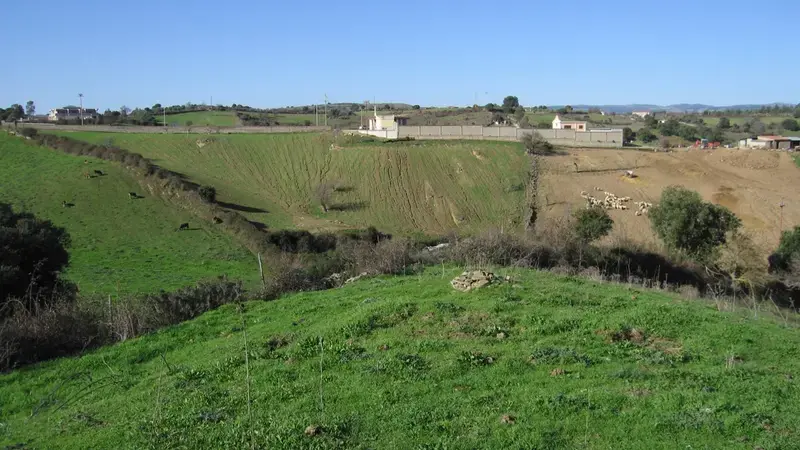Pioneering research findings by ICARDA scientists

ICARDA takes pride in the innovative research studies conducted by its scientists. Below here we present three studies that were recently published in some top-notch journals in the areas of sustainable land management, hydrology and plant genetics.
Multifaceted Impacts of Sustainable Land Management in Drylands: A Review
Land degradation, which is one of the most severe problems of current times, needs effective measures of sustainable land management (SLM) that can help reduce the impacts of degradation and the loss of valuable land to desertification. A team of researchers including Dr. Claudio Zucca, ICARDA’s Soil Conservation/Land Management Specialist, Integrated Water and Land Management and Ecosystems Program, reviewed the recent efforts in SLM, soil and water conservation, and land restoration in drylands. A comprehensive analysis of diverse ecosystems (croplands, rangelands, forests, and coastlands) provided a wide perspective to determine multifaceted impacts on biophysical and socio-economic factors and the elements influencing effective upscaling of SLM practices. The study concluded that for the successful upscaling of land management, more attention must be paid to the social system from the first involvement stage, up to the long term maintenance. Enabling policies are crucial for successful SLM because on their basis governments can promote well informed land use decisions. The most effective policy tool for the implementation of SLM is public education. To achieve effective communication of scientific knowledge to policy, it was suggested that findings must be interdisciplinary and have cross-sectoral approaches. This research was supported by the EU-funded COST Action ES1104, and the CGIAR Research Programs on Dryland Systems (CRP-DS) and Water Land and Ecosystems (WLE), with knowledge inputs from the World Overview of Conservation Approaches and Technologies (WOCAT). (Detailed report: http://www.mdpi.com/2071-1050/8/2/177)
Reducing the uncertainty of streamflow predictions of ungauged catchments is very important for water resources planning and management. A recent study conducted in collaboration with a group of researchers comprising Dr. Biju George, ICARDA’s Irrigation & Water Management Specialist, Integrated Water and Land Management and Ecosystems Program, and scientists from the University of Melbourne and the Commonwealth Scientific and Industrial Research Organisation (CSIRO) Land and Water, examined the capability of remotely sensed evapotranspiration (ET) and soil moisture in calibrating a hydrologic model and its efficacy to improve streamflow predictions. The study concluded that calibration with accurate ET measurements is a robust way to produce accurate streamflow predictions. This study on the use of remotely sensed information for hydrologic model calibration has important implications for many river basins in the African continent, which are either poorly gauged or completely ungauged. (Detailed report: http://dx.doi.org/10.1016/j.jhydrol.2016.02.018)
Path analysis of genotype × environment interactions in rainfed durum wheat
The health and well-being of the world’s growing population are largely dependent on the ability of the agricultural industry to develop high-yielding cultivars that can increase production yields. The development of high-yielding cultivars requires a thorough knowledge of the existing genetic variation for yield and its components. Grain yield is a result of the combined effects of genotype, environment, and their interaction. In a study that was a part of the regional durum wheat research project of the Dryland Agricultural Research Institute (DARI) of Iran and supported by the Agricultural Research, Education and Extension Organization (AREEO), Dr. Ahmed Amri, ICARDA’s Head of GRS/Deputy Director of Biodiversity and Integrated Gene Management Program, along with other scientists, investigated the genotype × environment (GE) interactions for grain yield and its components and the mechanism by which the stability of grain yield is achieved in rainfed durum wheat. Study results showed that higher grain yields are associated with higher kernel weight, which results from early flowering and rapid grain filling. Therefore, more emphasis should be given to these traits for the improvement of yield in durum wheat under rainfed conditions of Iran. (Detailed report: http://www.tandfonline.com/doi/pdf/10.1080/1343943X.2015.1128100)
